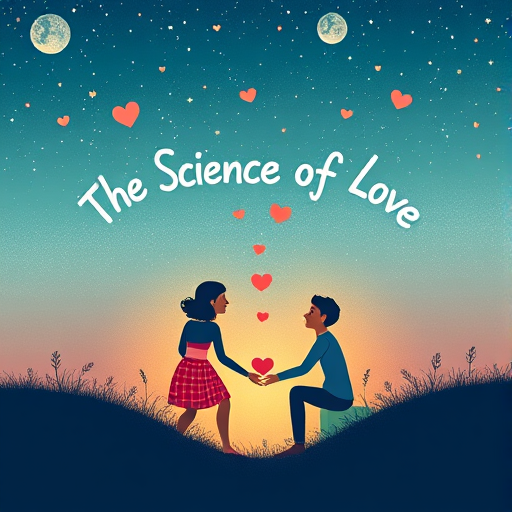The Science of Love: Why We Fall and How to Stay in Love
Introduction:
Falling in love is one of life’s greatest mysteries and joys. It’s a complex dance of emotions, biology, and chemistry that leaves us breathless and eager for more. But have you ever wondered why we fall in love with certain people and not others? Or how we can keep the spark alive and maintain a deep, lasting connection? In this article, we’ll explore the science behind why we fall in love and reveal practical tips to help you nurture and sustain your romantic relationships. So, whether you’re currently smitten or seeking your next great love, read on to uncover the secrets of the heart.
Why We Fall in Love: The Science Behind It All
Falling in love is a multifaceted process involving a complex interplay of psychological and biological factors. While it may feel like a magical, uncontrollable force, there are scientific reasons why we’re drawn to certain people.
Biology and Chemistry
At a biological level, love is influenced by our hormones and neurotransmitters. When we first fall in love, our brain releases a rush of feel-good chemicals, including dopamine (the pleasure hormone), oxytocin (the “love hormone” associated with bonding and attachment), and vasopressin (which promotes social bonding). This chemical cocktail creates the intense feelings of euphoria, obsession, and craving we associate with new love.
Additionally, our genes play a role in who we fall for. Studies suggest that certain genetic variations influence our choice of partner, with some individuals seeking specific traits or characteristics in a potential mate.
Psychology
Psychologically, we’re drawn to people who meet our unique set of criteria for an ideal partner. This includes both conscious and unconscious factors. For example, we may consciously seek someone with a similar educational background or shared interests, while unconsciously, we might be attracted to someone who reminds us of a caring parent or exhibits traits we wish we possessed ourselves.
Our early life experiences also shape our love patterns. Attachment styles, formed in childhood based on our relationships with caregivers, influence how we relate to romantic partners in adulthood. Secure attachment often leads to healthier relationship patterns, while insecure attachment styles can result in difficulties with trust, intimacy, or commitment.
Nurturing Lasting Love
Understanding why we fall in love is just the beginning. The real challenge lies in keeping that love alive and thriving over the long term. Here are some science-backed strategies to help you nurture and sustain your romantic relationships.
Prioritize Emotional Connection
Emotional intimacy is the glue that holds relationships together. Creating a safe space where both partners feel comfortable sharing their thoughts, feelings, and vulnerabilities is key. Make time for deep conversations, listen actively, and practice empathy.

Keep the Spark Alive
Maintaining sexual attraction and desire is crucial for long-term relationships. Novelty and excitement can boost dopamine levels, so try new things together, whether it’s a shared hobby or a romantic adventure. Also, don’t forget the power of physical touch. Holding hands, hugging, and kissing release oxytocin, strengthening your bond.
Practice Gratitude and Appreciation
Expressing gratitude and appreciation for your partner not only makes them feel valued but also reminds you of the positive aspects of your relationship. Make it a habit to verbally acknowledge their efforts, write love notes, or send thoughtful texts. Regularly reflecting on the good in your relationship can help shift your focus and create a more positive dynamic.
A Call to Action
Love is a powerful force that can bring immense joy and fulfillment. By understanding the science behind why we fall in love and implementing strategies to nurture our relationships, we can create deeper connections and sustain long-lasting love. So, take the time to




